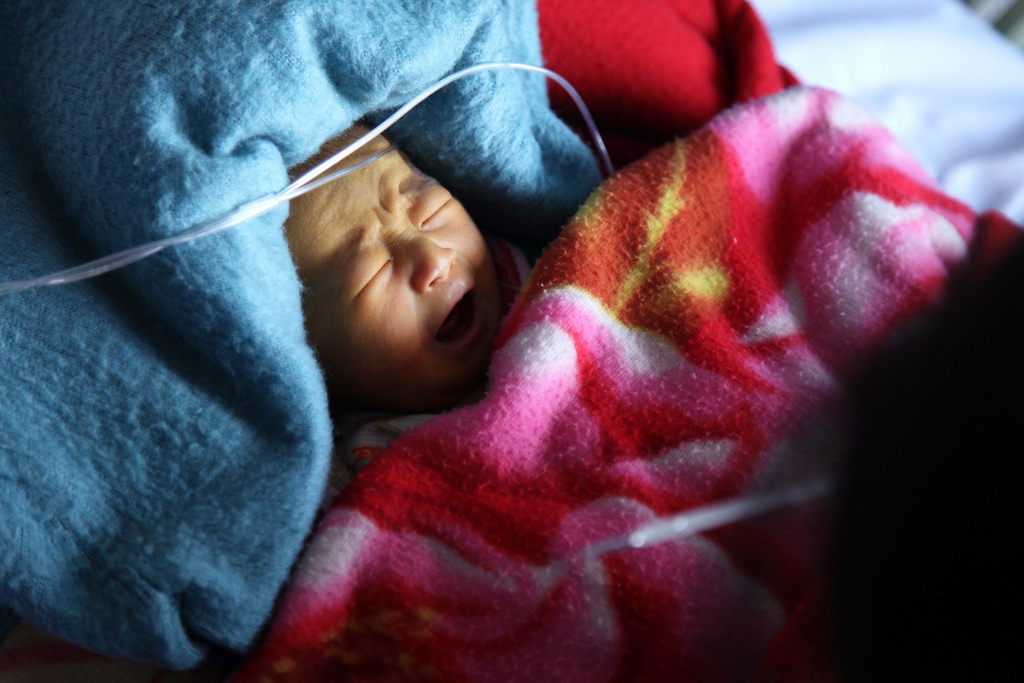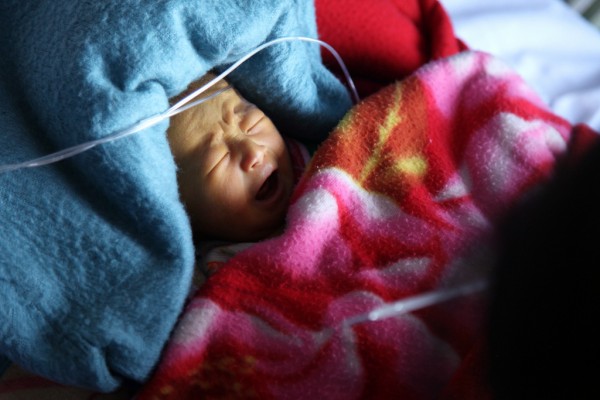The walls of Seoul’s Jusarang church are brightly painted with butterflies and ladybirds. This is how a desperate new mother will know she has come to the right place. After climbing the steps alongside the church she will see the Baby Box, and know she is saved. Above a hatch in the wall, a sign reads:
For a birthmother that could not raise her special needs baby or unwedded birth, please pull the handle below and leave your baby inside.
She opens the hatch to find a small makeshift bed, heated and well-lit. Once she places the baby inside the box, an alarm goes off and the inhabitants of the house come running. They rush to open the hatch from the inside and retrieve the bundle. The words just above the handle to the box read:

